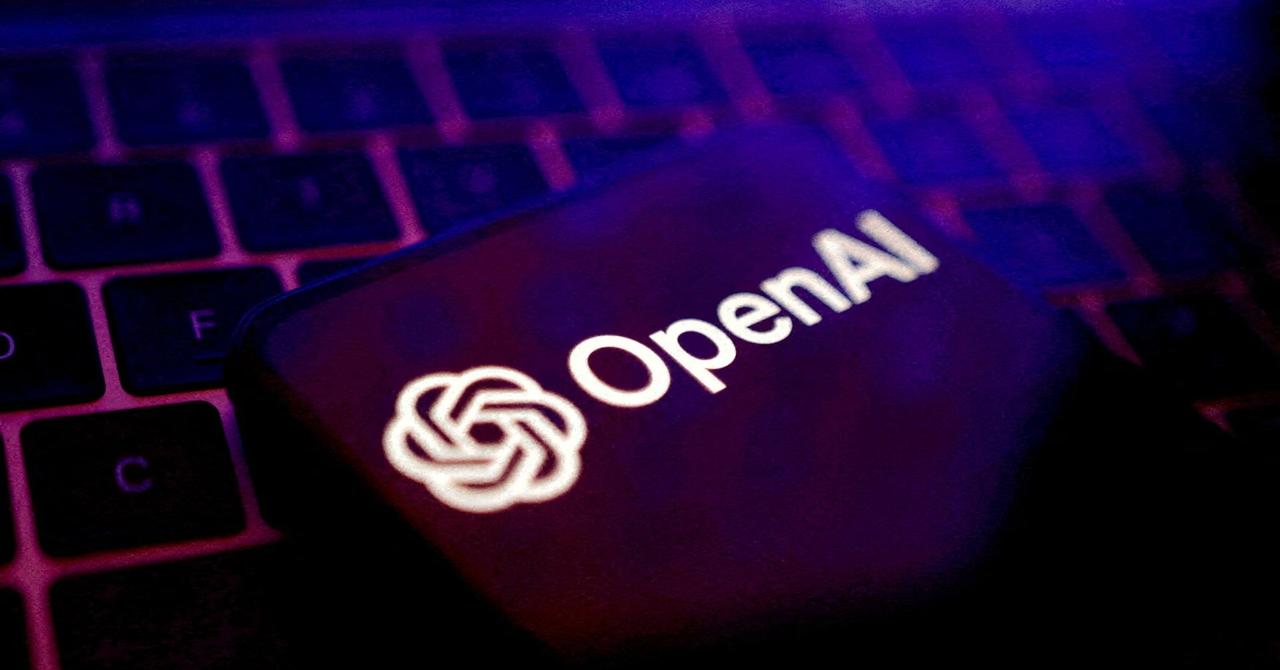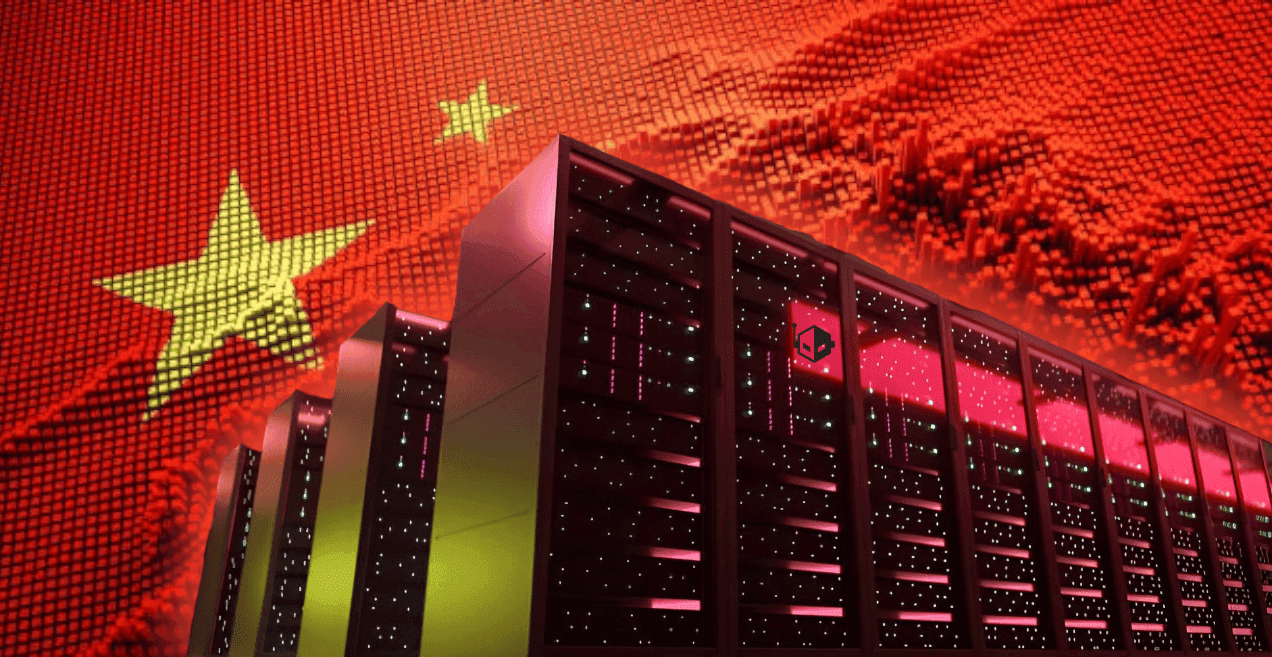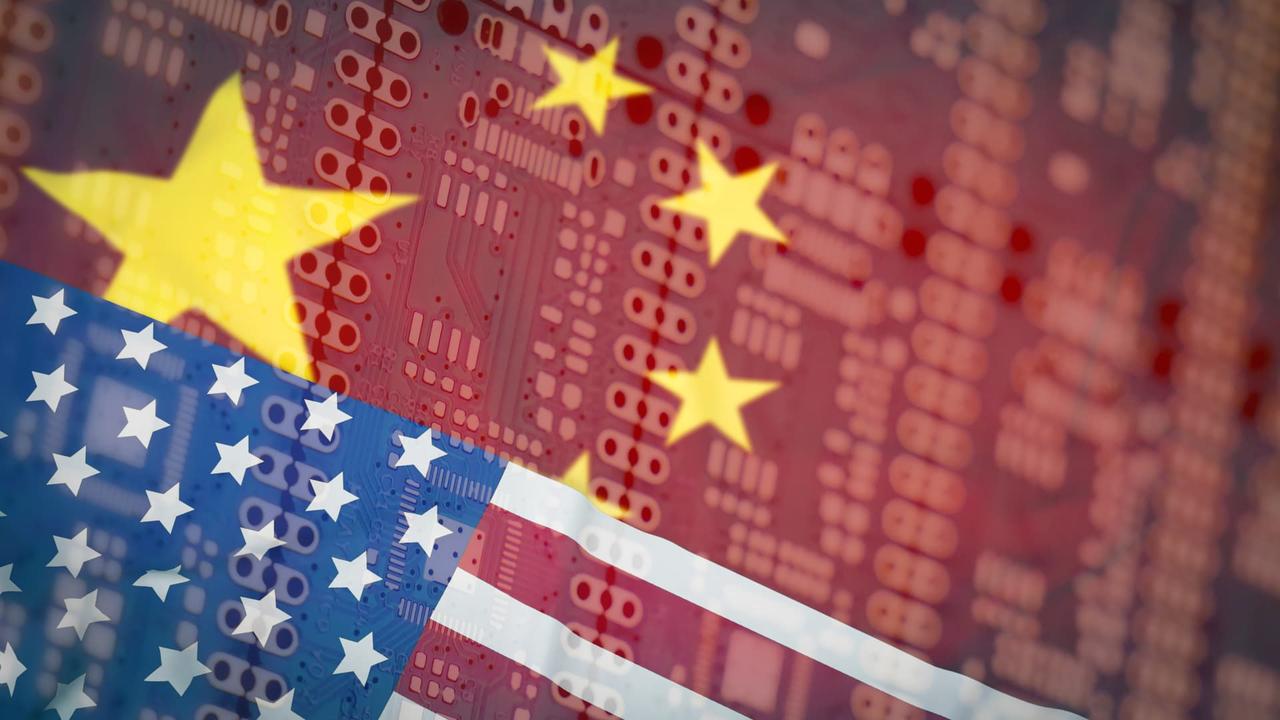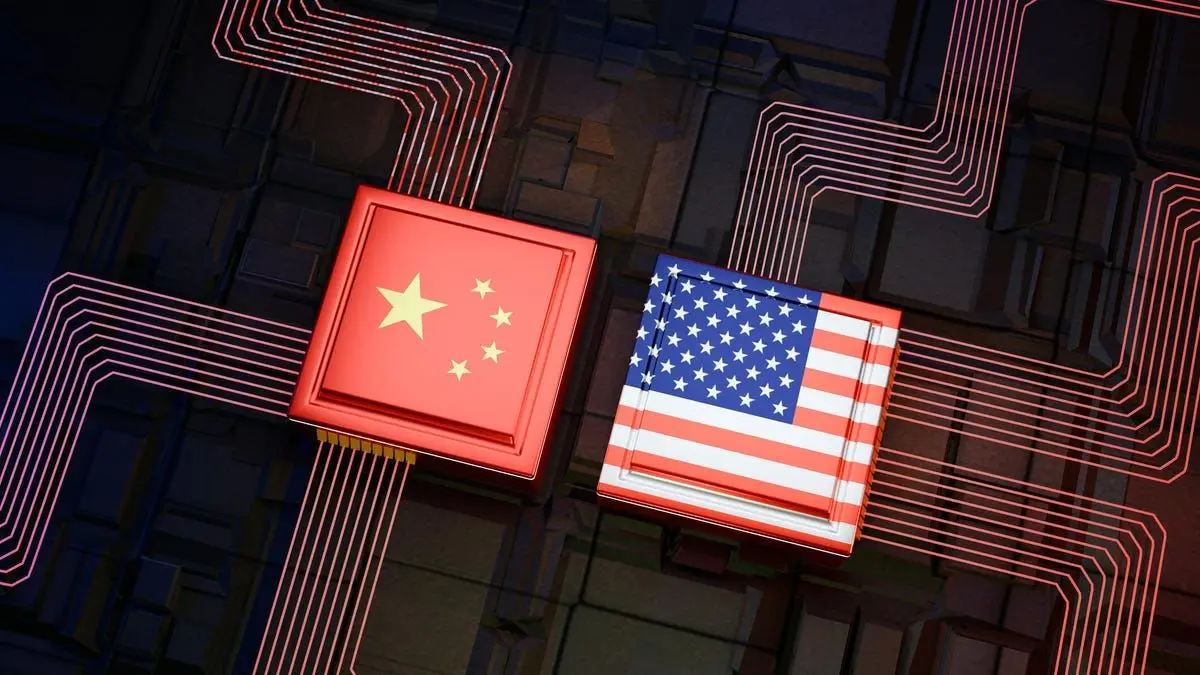OpenAI Flags Chinese Startup Zhipu AI as Major Competitor in Global AI Race
7 Sources
7 Sources
[1]
OpenAI says China's Zhipu AI gaining ground amid Beijing's global AI push
June 25 (Reuters) - OpenAI said on Wednesday its analysts have seen notable progress by Chinese start-up Zhipu AI in securing government contracts across several regions, signaling China's growing momentum in pursuing global AI leadership. Zhipu AI, which is backed by the Chinese Communist Party, aims to "lock Chinese systems and standards into emerging markets before U.S. or European rivals can, while showcasing a 'responsible, transparent and audit-ready' Chinese AI alternative," the ChatGPT maker said in its post. The company provides AI solutions -- including sovereign large language model infrastructure and private hardware in partnership with Huawei -- to governments and state-owned enterprises in Malaysia, Singapore, the UAE, Saudi Arabia and Kenya. The initiative forms part of China's broader effort to build a self-sufficient, globally competitive AI ecosystem that rivals the United States while reducing reliance on American technology. Zhipu AI, which did not immediately respond to a request for comment, is supported by more than $1.4 billion in state investment and maintains strong ties with the Chinese government and state-owned entities, according to OpenAI. In January, the company was added to the U.S. Commerce Department's export control entity list, barring it from procuring U.S. components. Zhipu AI has been positioning itself among China's leading AI firms alongside DeepSeek, Moonshot AI, and Minimax, as well as tech giants ByteDance and Alibaba (9988.HK), opens new tab. OpenAI has also built partnerships and attracted investment across the Middle East and Asia. Its "OpenAI for Countries" initiative helps interested governments develop "sovereign AI capability" in coordination with the U.S. government. The report comes as the U.S. and China engage in intense competition in the rapidly evolving AI landscape, with both nations vying for technological dominance. Reporting by Kritika Lamba in Bengaluru; Editing by Tasim Zahid Our Standards: The Thomson Reuters Trust Principles., opens new tab Suggested Topics:Artificial Intelligence
[2]
Blacklisted by the U.S. and backed by Beijing, this Chinese AI startup has caught OpenAI's attention
"While we hear the most about new models, just as significant is CCP headway in getting other governments around the world to adopt its AI," OpenAI said. OpenAI is putting a spotlight on an under-the-radar artificial intelligence startup that it believes is on the "front line" of China's race to lead the world in AI -- and its not DeepSeek. In a blog post on Wednesday, the company wrote that Beijing-backed Zhipu AI has made "notable progress" in the AI race, as global competition ramps up. Zhipu AI, founded in 2019, has been referred by domestic media as one of China's "AI tigers" -- a class of large language model unicorns seen as key to Beijing's efforts to rival the U.S. and reduce its dependence on American technology. While fellow "AI tiger" DeepSeek has received the lion's share of international attention after it released its R1 model in January, OpenAI suggests that Zhipu's expansion outside China and its ties to Beijing deserve more scrutiny. The startup has raised funds from several local governments, according to state media. "Zhipu AI leadership frequently engages with CCP officials, including Premier Li Qiang," OpenAI claimed, pegging the value of state-backed investments in the startup at over $1.4 billion. Zhipu AI reportedly has offices in the Middle East, the United Kingdom, Singapore and Malaysia, and is also running joint "innovation centers" projects across Southeast Asia, including in Indonesia and Vietnam. Those factors could see Zhipu AI playing a key role in China's "Digital Silk Road" strategy, as it offers AI infrastructure solutions to governments around the world. "The goal is to lock Chinese systems and standards into emerging markets before US or European rivals can, while showcasing a 'responsible, transparent and audit-ready' Chinese AI alternative," OpenAI said. Zhipu AI did not immediately respond to a request for comment on OpenAI's statements. However, last week, Zhipu AI Chairman Liu Debing told reporters that the company hoped to contribute China's AI power to the world. These aims represent a threat to OpenAI, which has received Washington's support to promote its foundational models as the world's go-to AI offering. During a visit to the UAE in May, U.S. President Donald Trump announced over $200 billion in commercial deals in the region, including one for building a Stargate UAE AI campus by OpenAI, Oracle, Nvidia and Cisco Systems. It's expected to be launched in 2026. The Stargate Project is a $500 billion AI-focused private sector investment vehicle, announced by OpenAI in January in partnership with Abu Dhabi investment firm MGX and Japan's SoftBank. This month, OpenAI was also awarded a $200 million contract to provide the U.S. Defense Department with artificial intelligence tools, and announced "OpenAI for Government," an initiative aimed at bringing its AI tools to public servants across the U.S. Zhipu is also said to be working with its domestic military, helping China's military to modernize through advanced artificial intelligence, which saw it added to the US Commerce Department's Entity List in January. The company has reportedly initiated preliminary steps toward launching an initial public offering. It has previously been valued at 20 billion yuan ($2.78 billion), according to local media reports.
[3]
Exclusive: China-backed AI firm targets new markets
Zoom in: OpenAI says its analysts have found that Zhipu is trying to make inroads in various countries in Asia and Africa. The big picture: The Trump Administration, tech leaders and others have positioned the battle over AI as the biggest of several must-win technology races, along with battles for leadership in semiconductors, quantum computing and alternative energy. Yes, but: Critics warn that the framing is leading to a downplaying of very real concerns and the race to deploy AI first raises the risk of unleashing unsafe systems.
[4]
OpenAI says China's Zhipu is gaining ground in AI race
OpenAI admits that a new Chinese competitor could dampen the American company's global ambitions. In a blog post Wednesday, OpenAI said that Zhipu AI, a billion-dollar startup backed by the Chinese government, has made "notable progress" in securing contracts with governments and state-owned firms in Southeast Asia, Africa and the Middle East -- many of the same goals that OpenAI is aiming for with its OpenAI For Countries initiative. Both companies are hoping to sell their own technology to countries aiming to build "sovereign AI." OpenAI's post says Zhipu AI's "goal is to lock Chinese systems and standards into emerging markets before U.S. or European rivals can," and that it is "positioning China's Belt and Road Initiative as the springboard for a multi-pronged 'Digital Silk Road' strategy." Which, of course, is pretty much what OpenAI is trying to do on behalf of U.S. interests. The term "sovereign AI" itself is contentious. A recent Fortune op-ed dismissed it as political branding, calling the practice "digital colonialism" resulting in a paradox. "The harder nations push for AI independence, the deeper their dependencies become" because of developing countries' reliance on chips, software and technology from geopolitical superpowers, wrote Nathan Benaich of Air Street Capital, citing OpenAI's recent Stargate UAE project. Chinese AI firm DeepSeek rattled the U.S. tech establishment earlier this year with open-source models that were as powerful as any market leader, developed at a fraction of the cost -- although it faced allegations that the models were lifted directly from OpenAI.
[5]
OpenAI is Flirting with Danger by Naming China's Blacklisted Zhipu AI as a Threat | AIM
OpenAI's blog post simply boosts the IPO-bound Zhipu AI's visibility among both funders and customers, effectively putting the Chinese rival on the global map. China's AI ecosystem is going strong. So much so that it is starting to compete internally, and the much-talked-about DeepSeek is no longer at the top. Zhipu AI is not a name that typically comes up in casual conversations about AI supremacy. It doesn't have the fanfare of DeepSeek or the benchmark-breaking headlines of Alibaba's latest models. But this week, OpenAI made it clear that Zhipu is a threat worth watching. In a blog post that reads more like a geopolitical intelligence memo than a developer update, OpenAI called out the Beijing-backed startup as a significant player in China's AI playbook. "While we hear the most about new models, just as significant is CCP headway in getting other governments around the world to adopt its AI," the post warned. At the centre of that strategy is Zhipu AI, which appears to be building the scaffolding for China's global AI infrastructure. Despite US sanctions, Zhipu is not starved for capital. According to a Reuters report, it recently raised $69 million in a Series D round led by state-owned Huafa Group. This comes on the heels of two recent funding rounds that the company secured from multiple local government bodies. Its current valuation is estimated to be $2.74 billion. The company has reportedly begun preliminary steps toward an IPO. Zhipu has also received support from Chinese tech giants Tencent and Alibaba, further blurring the line between state-backed innovation and private-sector speed. Founded in 2019, Zhipu AI has been dubbed one of China's "AI tigers," a term used by Chinese state media to describe the handful of LLM unicorns spearheading Beijing's push to reduce dependence on Western technology. Unlike DeepSeek, which has become the poster child of Chinese AI ambition with its R1 model, Zhipu is playing a different game -- one that involves partnerships with foreign governments, stealthy international expansion, and direct support from the Chinese Communist Party. State media reports say the startup has secured over $1.4 billion in state-backed investment and frequently engages with top-level Chinese officials, including Premier Li Qiang. The company also reportedly has working relationships with the Chinese military -- a detail that led to its inclusion on the US Commerce Department's Entity List in January 2025, effectively blacklisting it from buying American components. But the ban hasn't slowed it down. Zhipu AI has established offices in Singapore, Malaysia, the United Kingdom, and the Middle East. It's also running joint "innovation centers" in Southeast Asia -- including in Indonesia and Vietnam -- as part of what OpenAI describes as China's strategy to embed its AI stack globally before Western alternatives can take hold. OpenAI's blog post seems less concerned with model performance and more alarmed about the architecture of influence. By offering "AI infrastructure solutions to governments around the world," Zhipu is laying the groundwork for a global Chinese AI ecosystem, one that could prove sticky for decades. "The goal is to lock Chinese systems and standards into emerging markets before US or European rivals can, while showcasing a 'responsible, transparent and audit-ready' Chinese AI alternative," OpenAI wrote. The language is telling. This is not about tech supremacy in the traditional sense. It's about building trust, negotiating procurement deals, and establishing data and infrastructure dependencies. Just this week, Zhipu AI launched AutoLM Rumination, a new AI agent that can carry out deep research, draft comprehensive reports, and help users plan complex tasks. Powered by the company's proprietary models, it's available for free. According to Zhipu, these models are not only as capable as DeepSeek R1, but also run eight times faster while consuming just one-thirtieth the compute resources. That's a remarkable claim -- one that, if accurate, could give Zhipu serious leverage in low-resource markets. The release comes shortly after another Chinese player, Manus AI, launched a general-purpose agent that outperformed OpenAI's deep research tools on the GAIA benchmark. Manus AI is now a commercial product with monthly plans, suggesting that Chinese companies are not just building fast but are also monetising fast. VC Bill Gurley questioned OpenAI's motives in spotlighting Zhipu AI, suggesting the move may have unintended consequences. "Very odd decision for OAI to openly promote this Chinese AI company 'Zhipu AI' in a blog post," he wrote on X. He suggests that the action taken simply boosts competitors' visibility among both funders & customers, effectively putting them on the map. Gurley's criticism echoes a broader sentiment in Silicon Valley that Zhipu, once obscure outside China, now finds itself in the global spotlight not because of a model release but because OpenAI chose to write about it. "The opposite of love is indifference," Gurley added, implying that attention, even critical, is a kind of endorsement. OpenAI's unease isn't just about competition. It's about losing narrative control. While the US has been aggressively promoting its AI stack globally through Project Stargate and government deals, trade missions, and strategic partnerships, China's quiet, infrastructure-first approach may prove more enduring. This is the US building walls. And unlike DeepSeek, which focuses solely on performance and visibility, Zhipu may be the one digging the trenches for now.
[6]
Chinese Startup Zhipu AI Seen as a Much Greater Threat Than DeepSeek to U.S. AI Dominance, Making Massive Moves in the Realm of Sovereign AI
Well, it seems like DeepSeek has just got a new competitor, and instead of making rounds over at the LLM segment, the Chinese startup Zhipu AI is on a broader and impactful mission, which is to conquer sovereign AI. The U.S. is the leading nation in artificial intelligence, but without prompt steps, this lead won't last much longer, since China is moving into the industry. Under President Trump's recent export control policies, the U.S. has managed to thwart China's AI capabilities to a greater extent, but it seems like sidelining Beijing won't be an easy job. One notable Chinese AI firm, apart from DeepSeek, is Zhipu AI, and while you have never heard the name of the company, OpenAI says that this startup is poised to take the lead in "sovereign AI", since it has now developed partnerships with several Gulf states, along with nations like Malaysia and Singapore. If we talk about the tech stack, Zhipu AI is said to have created an ecosystem for governments to target the development of AI infrastructure, and the firm is partnering up with Huawei to provide sovereign LLM infrastructure and private hardware to several state-backed organizations. One of the more notable achievements by the company is their AutoGLM Rumination AI agent, which is said to compete with several mainstream models in tasks like browser automation and long-context reasoning. Zhipu AI is claimed to have received over $1.4 billion in investments through state-backed organizations, and has also raised $400 million from Saudi Arabia's Prosperity7 Ventures, so the startup has seen interest from corporate investors. The company's involvement with governments shows that China isn't backing down anytime soon in the AI segment, and the nation now plans to increase influence in global markets, which is why firms like Zhipu AI, Huawei and many more are targeting the Middle East, with their AI offerings. The competition coming from Zhipu AI is indeed an "alarming" situation for the U.S. and its AI ambitions, especially since President Trump himself is eying the Middle East as the next place to establish authority, particularly in the realm of AI.
[7]
OpenAI says China's Zhipu AI gaining ground amid Beijing's global AI push
(Reuters) -OpenAI said on Wednesday its analysts have seen notable progress by Chinese start-up Zhipu AI in securing government contracts across several regions, signaling China's growing momentum in pursuing global AI leadership. Zhipu AI, which is backed by the Chinese Communist Party, aims to "lock Chinese systems and standards into emerging markets before U.S. or European rivals can, while showcasing a 'responsible, transparent and audit-ready' Chinese AI alternative," the ChatGPT maker said in its post. The company provides AI solutions -- including sovereign large language model infrastructure and private hardware in partnership with Huawei -- to governments and state-owned enterprises in Malaysia, Singapore, the UAE, Saudi Arabia and Kenya. The initiative forms part of China's broader effort to build a self-sufficient, globally competitive AI ecosystem that rivals the United States while reducing reliance on American technology. Zhipu AI, which did not immediately respond to a request for comment, is supported by more than $1.4 billion in state investment and maintains strong ties with the Chinese government and state-owned entities, according to OpenAI. In January, the company was added to the U.S. Commerce Department's export control entity list, barring it from procuring U.S. components. Zhipu AI has been positioning itself among China's leading AI firms alongside DeepSeek, Moonshot AI, and Minimax, as well as tech giants ByteDance and Alibaba. OpenAI has also built partnerships and attracted investment across the Middle East and Asia. Its "OpenAI for Countries" initiative helps interested governments develop "sovereign AI capability" in coordination with the U.S. government. The report comes as the U.S. and China engage in intense competition in the rapidly evolving AI landscape, with both nations vying for technological dominance. (Reporting by Kritika Lamba in Bengaluru; Editing by Tasim Zahid)
Share
Share
Copy Link
OpenAI highlights the rapid progress of Chinese AI startup Zhipu AI in securing government contracts globally, signaling China's growing momentum in the race for AI leadership.
OpenAI Raises Alarm on Zhipu AI's Global Expansion
In a surprising move, OpenAI has publicly acknowledged the growing influence of Zhipu AI, a Chinese startup backed by the Chinese Communist Party (CCP), in the global artificial intelligence race. OpenAI's recent blog post highlights Zhipu AI's "notable progress" in securing government contracts across several regions, signaling China's increasing momentum in pursuing global AI leadership
1
.
Source: Reuters
Zhipu AI's Strategic Positioning
Zhipu AI, founded in 2019, has been dubbed one of China's "AI tigers" - a class of large language model unicorns seen as key to Beijing's efforts to rival the U.S. and reduce its dependence on American technology
2
. The company provides AI solutions, including sovereign large language model infrastructure and private hardware in partnership with Huawei, to governments and state-owned enterprises in Malaysia, Singapore, the UAE, Saudi Arabia, and Kenya1
.Government Backing and International Expansion

Source: Wccftech
Zhipu AI has received substantial support from the Chinese government, with state-backed investments reportedly exceeding $1.4 billion
2
. The company has established offices in the Middle East, the United Kingdom, Singapore, and Malaysia, and is running joint "innovation centers" projects across Southeast Asia, including in Indonesia and Vietnam5
.The "Digital Silk Road" Strategy
OpenAI suggests that Zhipu AI is playing a key role in China's "Digital Silk Road" strategy, offering AI infrastructure solutions to governments worldwide. The goal, according to OpenAI, is to "lock Chinese systems and standards into emerging markets before US or European rivals can, while showcasing a 'responsible, transparent and audit-ready' Chinese AI alternative"
2
.US-China AI Competition Intensifies

Source: CNBC
The revelation comes amid intensifying competition between the U.S. and China in the rapidly evolving AI landscape. Both nations are vying for technological dominance, with initiatives like OpenAI's "OpenAI for Countries" and the U.S. government's support for promoting American AI models globally
3
.Related Stories
Zhipu AI's Technological Advancements
Zhipu AI recently launched AutoLM Rumination, a new AI agent capable of deep research, comprehensive report drafting, and complex task planning. The company claims its models are as capable as DeepSeek R1 but run eight times faster while consuming just one-thirtieth of the compute resources
5
.Controversy and Criticism
OpenAI's decision to spotlight Zhipu AI has drawn criticism from some quarters. VC Bill Gurley questioned the move, suggesting it may unintentionally boost Zhipu's visibility among funders and customers
5
. Critics also warn that framing AI development as a race could lead to downplaying real concerns and increase the risk of unleashing unsafe systems3
.The Future of Global AI Competition
As the AI race intensifies, both OpenAI and Zhipu AI are vying to sell their technology to countries aiming to build "sovereign AI" capabilities. However, some experts warn that this push for AI independence may paradoxically deepen dependencies on geopolitical superpowers due to reliance on chips, software, and technology
4
.The emergence of Zhipu AI as a significant player in the global AI landscape underscores the complex interplay of technology, geopolitics, and economic competition in shaping the future of artificial intelligence.
References
Summarized by
Navi
[2]
Related Stories
DeepSeek: China's AI Breakthrough Challenges U.S. Dominance
13 Feb 2025•Technology

OpenAI Calls for Ban on Chinese AI Model DeepSeek, Citing Security and Competition Concerns
18 Mar 2025•Technology

Chinese AI Models Close Gap With US Systems as Open-Source Strategy Reshapes Global Tech Order
22 Dec 2025•Policy and Regulation

Recent Highlights
1
Google Gemini 3.1 Pro doubles reasoning score, beats rivals in key AI benchmarks
Technology

2
Nvidia and Meta forge massive chip deal as computing power demands reshape AI infrastructure
Technology

3
ChatGPT cracks decades-old gluon amplitude puzzle, marking AI's first major theoretical physics win
Science and Research





